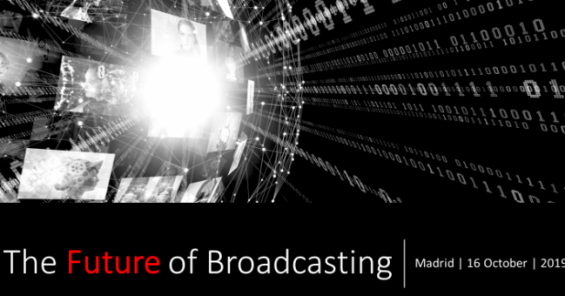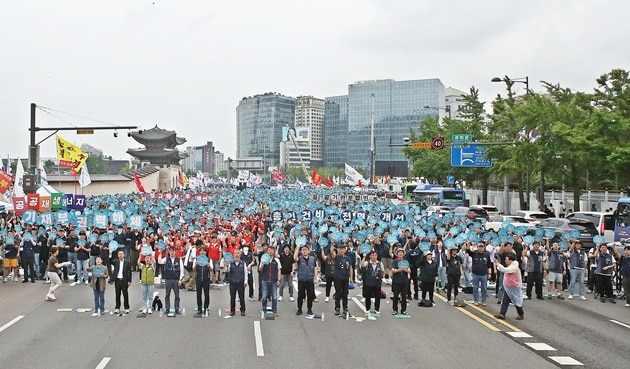Representatives of broadcasting unions, commercial and public broadcasters came together in Madrid to discuss prospects of the digital transformation. The conference organised by the UNI MEI Executive Committee provided a platform to exchange on good practices in managing change and to assess what factors are driving sustainable development of the broadcasting industry. Sessions with Spanish and European representatives of broadcasters were followed by presentations and panels with union representatives from across the world sharing their views on the opportunities and challenges of the digital transformation and addressing the fundamental question how to foster media freedom.
The panel discussion among union leaders and representatives of the Association of Commercial Television, Europe (ACT) and the European Broadcasting Union (EBU) looked in detail at the situation in Europe. The new legislative term with a new EU Commission to take office soon is an opportunity to putting forward demands for a better regulatory framework that favours sustainable growth. Grégoire Polad of the ACT underlined the need for building a European industrial policy for the audiovisual sector. A view shared by UNI MEI and its unions. European audiovisual policy is patchwork at best and lacks the tools of a truly industrial policy that other, more traditional industries, benefit from. Wouter Gekiere speaking for the EBU echoed the call for a strong EU policy framework and stressed that EBU has called on EU policy makers to champion media policies that will protect the vital role public service media plays in democratic societies. Phillipa Childs, Head of BECTU and Masatoshi Nakamura, President of NIPPORO both underlined that social dialogue between employers and unions can and should include the mission and role of broadcasting organisations. BECTU’s campaign for the free TV licence for over-75s is one of the many examples of union action to make broadcasting an inclusive and just service for all citizens while broadcasting is undergoing a significant change. To make the future of broadcasting work, the workforce and citizens not technology need to be at the core of change, said Laura Castro of the Chilean Federation of Broadcasting Unions, FETRA-TV.
The roundtable discussion on the prospects of the broadcasting sector in Spain clearly showed that the capacities of public service media need to be strengthened. To fulfil its mission in a global digital economy characterised by consolidation, the Spanish public broadcaster RTVE is transforming services and programming to adapt to the fragmentation of audiences and new ways of consumptions. UNI MEI’s Spanish affiliates’ FeSMC-UGT and FSC-CCOO, representing workers at RTVE are advocating for a strong role of RTVE in the new emerging audiovisual ecosystem and concerned with the prospects of the future of broadcasting in Spain. Cristina Bermejo FSC-CCOO described the devasting effects of cuts in funding on RTVE that not only reduced the broadcasters’ strategic capacities but also lead to job losses and deterioration of working conditions. Chema González of FeSMC-UGT underlined the lack of investment in sustainable careers for broadcasting workers including a stronger emphasis on skills development as one tool to support staff in the digital transformation process.
Colleagues form Czech Republic, France, Ireland and Malaysia echoed the assessment of the Spanish sister unions when presenting their experiences of their unions shaping the digital transformation in both, commercial and public broadcasters. Despite, cultural and economic specificities, the findings are largely universal: broadcasting workers are facing multiply challenges: while the industry needs a more agile workflow and greater flexibility from its workers, multiskilling and cross platform production increases workload. However, budgets for skilling and re-training do not match the needs. Restructuring and outsourcing further weaken the in-house capacity of broadcasters and often imply higher production costs. The unions’ response to these challenges are multiple. Negotiating agreements seek to temper the effects of outsourcing while campaigns to protect the rights and pay of freelance workers aim at supporting colleagues working for the companies servicing broadcasters. Further, unions campaign for new licensing and funding models, regulations on advertising and fairer taxation of all players including the new gate keepers of the digital economy.
“Independence equals Freedom” was UNI MEI’s message on the United Nations World Television Day of 21 November 2018 calling on governments to step-up their efforts to ensure media freedom. However, the situation has not improved over the last year. Many solidarity actions coordinated by UNI MEI responded to calls from affiliates who are fighting attacks on the editorial, political and financial independence of broadcasting organisations. The presentations of our four panellists from Argentina, France, Taiwan and Turkey gave reports on the rise of attacks on TV networks and their staff by representatives of governments and political parties, described attempts to curtail the political independence of public broadcasters by oppressive regulation and the undermining of the authenticity and credibility of news reporting that constitute a threat to the independence of television and hence the freedom within democratic societies. The report and appeal for solidarity from Burak Ustaoğlu of the Turkish union HABERSEN that fights against the oppression of broadcasting and media organisations by of the Turkish authorities was a call for action for UNI MEI and its affiliates to continue its campaign for the right to freedom of broadcasting workers in Turkey and all places where media workers are under attack. As part of campaign in support of Turkish colleagues, UNI MEI’s European Executive Committee is planning to hold its next meeting in Ankara and to continue the dialogue with broadcasters and authorities following the UNI MEI mission to Turkey in earlier this year.


